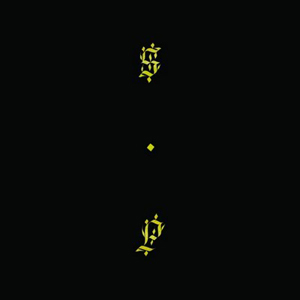Shabazz Palaces Black Up
To put it mildly, the return of Anti Pop Consortium (as heard on the uneven […]

To put it mildly, the return of Anti Pop Consortium (as heard on the uneven Flourescent Black LP) and Beans’ most recent solo album, End it All, were mostly lackluster listens, and certainly not the kind of forward-thinking, leftfield hip-hop statements some might have hoped they would be. The inventive wordplay and creative beat work were more or less still intact, but something about those records felt a bit tired, as if the one-time game-changers that made them weren’t as interested in flipping the current hip-hop scene on its head as they were in resurrecting a forgotten legacy. With Black Up, the debut full-length from Seattle artist Shabazz Palaces (a.k.a. Palaceer Lazaro a.k.a. Ishmael “Butterfly” Butler of Digable Planets), we’re presented with an artist who has shed his past as a mid-’90s conscious rap icon to soldier on into fresh musical territories, and ultimately deliver experimental hip-hop’s next proper left turn.
What’s likely to stick out first and foremost on the 10 tracks that comprise Black Up are the beats. Each production bucks just about every possible hip-hop convention in favor of sparse sonic arrangements, twisted song structures that change course without a moment’s notice, and an understated current of cosmic psychedelia throughout. Take album opener “free press and curl”: The initial 30 seconds of the song flirts with at least three separate directions it could take before Butler’s cocksure flow joins the distorted bass groove for the track’s first half, only to switch things up during the last minute or so to rhyme coolly over an entirely different beat. It sounds like you’re getting two tracks for the price of one, but as the bounty of ideas heard on the remaining nine cuts reveals, that’s just Shabazz Palaces’ modus operandi.
Black Up‘s second tune, “An echo from the hosts that profess infinitum,” follows in similarly discordant and spaced-out fashion before moving into the orchestral “Are you.. Can you… Were you? (Felt),” which brings to mind some of the more somber moments of Flying Lotus’ Cosmogramma while maintaining a kind of experimental-pop listenability that record never had. It’s a quality inherent in Shabazz Palace’s whole LP, and could be mostly attributed to Butler’s prowess as an MC, not to mention that of his talented guest vocalists. He often and with great effect slips quotable hooks—like the chanted refrain of “free press and curl” and the playful rhymes that start off Black Up‘s final track, the almost radio-ready “Swerve… The reeping of all that is worthwhile (Noir not withstanding)”—into his smooth, existentialist flows. So, while our minds are inundated with the experimental beats, loosely melodic instrumentation, and jazzy space noise on every one of these 10 productions, Butler’s vocal work is grounded enough to keep us anchored to the music, even in the rare moments when it seems to fly a bit too far off course. It’s that exhibited balance between truly original experimentation and the application of some of hip-hop’s most reliable methods that makes Black Up the fully formed and refreshing statement it is.

